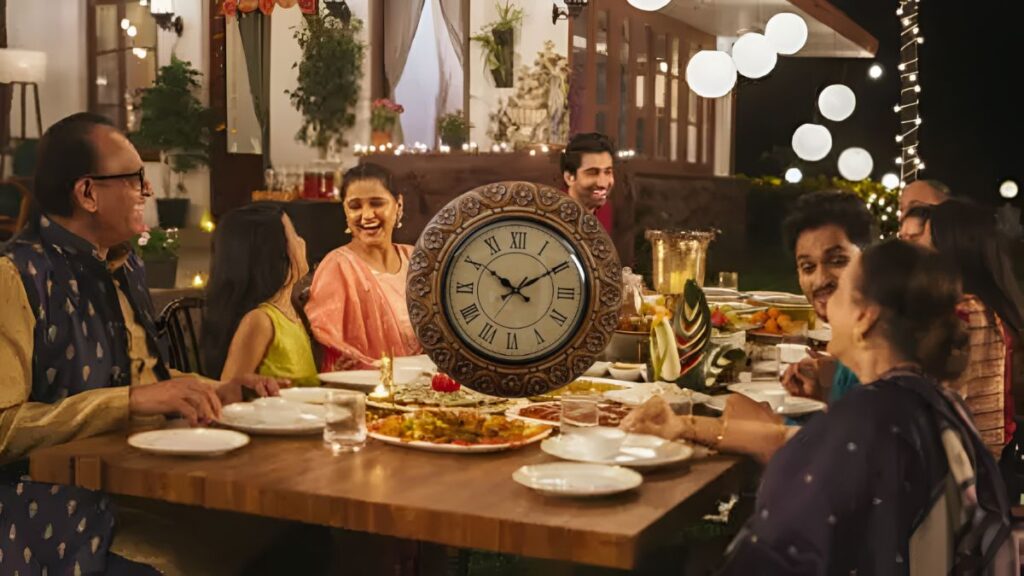What’s the Best Time to Have Dinner? Nutritionists Share Insights on Digestion, Sleep and Health

For most people, dinner time is influenced by work schedules, late-night meetings, or simply when hungry. But nutrition experts suggest that the time you have dinner plays an important role in your digestion, sleep, and overall health than many realise.
Registered dietitian nutritionist Marisa Moore explains that there isn’t a single “perfect” time for dinner. What matters most is how close you eat to bedtime. Eating heavy meals less than two to three hours before sleeping can disturb digestion and reduce sleep quality. For those who usually sleep around 10 p.m., dinner must be finished by 7 pm so that the body gets enough time to digest the meal properly during waking hours. If there is unprocessed or undigested food in the system when you go to sleep, it generally causes more problems than benefits. While sleeping all the process of the body including digestion slow down and any undigested food in the system starts to produce gas and acid.
Cleveland Clinic dietitian Julia Zumpano writes that early dinners often help with better sleep and steadier blood sugar levels. “An earlier dinner gives you a good amount of time to digest your food and allows your blood sugar to properly rise and fall after dinner,” she says. Many people who adopt this practice report waking up fresher than those who eat late into the night.
However it is not possible to always have early dinner. Work, entertainment, family commitments and old habits influence the time everyone has dinner. If early dinner is not possible, experts suggest keeping meals lighter and focusing on protein and vegetables instead of starchy or fatty foods. A short walk after eating can also help digestion.
Another approach suggested by some experts is time-restricted eating, where all the meals are finished within an 8–12 hour window during the entire day, often ending with dinner by 7 p.m. This allows the body to rest from digestion overnight. There are views that all meals should be finished during sunlight or at the most, by the time the daylight is still there. While it may not suit everyone, it can definitely help those facing late-night hunger or irregular eating patterns.
Ultimately, nutritionists opine that the best dinner time depends on one’s lifestyle and health goals. One late meal won’t bring the sky down, but consistently eating too close to bedtime can affect long-term health. More than fussing over the clock, it’s about listening to your body and choosing foods that support digestion and sleep.
Researchers also suggest that meal timing is linked to the body’s natural circadian rhythm. When eating patterns are tuned to this internal clock, digestion, metabolism, and energy levels function more smoothly. Skipping meals or eating too late, can also increase the risk of obesity, diabetes, and poor sleep. Experts recommend eating breakfast within two hours of waking, spacing meals every three to four hours, and finishing dinner at least three hours before bedtime.
Think of it as not just eating to fill your stomach, but mindful eating, finely tuned to the rhythm of the body.
Ultimately it is a matter of personal choice and recommendations by one’s healthcare professional or a dietician are to be followed. This article is meant for information only and not to be considered as an expert advice. Always consult a certified healthcare professional before making any dietary of lifestyle changes.







